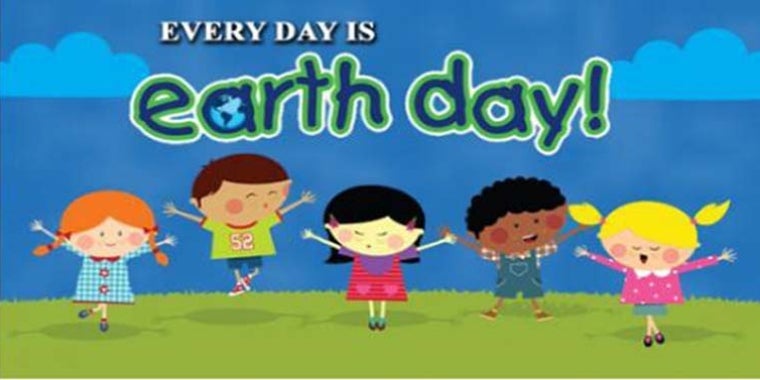Haiti Assistance & Relief Taskforce (HART)
Ruth Hassell-Thompson
January 28, 2010
-
COMMITTEE:
- New York State Conference of Black Senators
As the Chairwoman of the Haiti Assistance and Relief Taskforce – H.A.R.T., Senator Ruth Hassell-Thompson is sponsoring this town hall meeting to:
Update the community on the Haiti relief efforts
Discuss Census 2010
Legal-Aid Society lawyers will be available to explain and assist Haitians fill out Temporary Protection Status (TPS) application.
The townhall meeting will be held Sunday, March 14, 2010 from 4:00 PM - 7:00 PM at the Haitian Congregation of the Good Samaritan Church located at 661 East 219th Street.
Latest Update on Haiti Relief - As of January 28, 2010
- There is a 6% rejection rate thus far as a result of misfiled TPS applications.
- The I-821 form must be accompanied by an I-765; otherwise it will be rejected. Rejected does not mean that the application was denied; it just means that USCIS will send the application back so that the applicant can correct the error and re-file.
- Applications must have original signatures.
- Look at the form to make sure it is the correct version of the form.
- The I-821 form should be the 10/17/2007 form or later. The I-765 form should be dated May 2008 or later. There are no derivative benefits for the spouse of somebody who has TPS. In other words, each person seeking TPS status must file for him or herself.
- TPS denied for 2 or more misdemeanors or felonies: Will these issues be relayed to ICE?
- USCIS is working with ICE to determine in what cases they will issue Notices to Appear (NTAs).
- For applicants in removal proceedings, you have to send the fees to one of the three lockbox operations listed on the website. There is no on-line filing.
- For those TPS applications that were sent prior to posting of the Federal Registrar, those applications have been accepted.
- USCIS has, and will continue to issue notices in Creole and French.
- I-601 waivers will need to be filed for certain inadmissible foreign nationals. USCIS encourages applicants to contact them with questions regarding inadmissibility.
- Types of immigration documentation that the DMVs should expect to see as proof of TPS:
- If TPS applicants also applied for Employment Authorization Documents (work authorization issued by USCIS upon filing of Form I-765 and approval by USCIS), the work authorization should suffice.
- If TPS applicants don't apply for EAD, they will get an approval notice (Form I-797).
- For those having difficulty establishing their Haitian nationality, what kind of secondary evidence can they provide?
- Passport, birth certificate, something showing that they were born in Haiti. Secondary evidence can include anything from Haiti, baptismal cert, affidavits from family members stating date of birth, place of birth, etc. Otherwise, plan on being issued a Request for Evidence (RFE), which will slow down the processing of TPS. USCIS also suggests contacting the Haitian consulate, which may be able to provide better documentation.
- There are not yet any memos of understanding or SOPs regarding if and when TPS ends, whether those cases will then be referred to ICE.
- The code that should be listed on Form I-765: (c)(19)
- If somebody is born to Haitian parents in a country other than Haiti, USCIS is looking to the law of Haiti to determine whether they would qualify for TPS, and under the Haitian constitution, since somebody born from Haitian parents out of Haiti may be considered to be Haitian nationals, USCIS deems them eligible for TPS.
- Applicants need to prove that they've been physically present in the US prior to Jan 12, 2010.
For your reference, I have also listed links to the United States Citizenship and Immigration Services ("USCIS") of the Department of Homeland Security's("DHS") website regarding Temporary Protected Status ("TPS"):
- Federal Register, dated January 21, 2010, confirming TPS for Haitian nationals: http://edocket.access.gpo.gov/2010/2010-1169.htm
- General link to Haiti page of USCIS' website, which includes Q & As for filing and clear guidelines regarding who should file which forms, at which addresses, and with which fees:
- I-821 TPS: The application form for TPS (please note that Form I-765, work authorization application, must also be filed): http://www.uscis.gov/portal/site/uscis/menuitem.5af9bb95919f35e66f614176543f6d1a/?vgnextoid=80283796f8a5d010VgnVCM10000048f3d6a1RCRD&vgnextchannel=e54e60f64f336210VgnVCM100000082ca60aRCRD
- Instructions in French for completing Form I-821: http://www.uscis.gov/USCIS/Forms/Forms%20Static%20Files/i-765instr-french.pdf
- Form I-765 work authorization application: http://www.uscis.gov/portal/site/uscis/menuitem.5af9bb95919f35e66f614176543f6d1a/?vgnextoid=73ddd59cb7a5d010VgnVCM10000048f3d6a1RCRD&vgnextchannel=e54e60f64f336210VgnVCM100000082ca60aRCRD
- Tips for filing TPS, with a helpful chart describing who needs to file what, and what fees are involved:
1.In English: http://www.uscis.gov/files/form/i-821_filing_tips.pdf
2.In Creole: http://www.uscis.gov/USCIS/Humanitarian/Haiti%20Earthquake/i-821filing_tips_creole.pdf
- Questions and Answers: Requesting Waiver of Fees Temporary Protected Status Applicants: http://www.uscis.gov/portal/site/uscis/menuitem.5af9bb95919f35e66f614176543f6d1a/?vgnextoid=4e1879bdb1c66210VgnVCM100000082ca60aRCRD&vgnextchannel=9cf75869c9326210VgnVCM100000082ca60aRCRD
- Don't be a victim of immigration fraud brochure from USCIS:
1.In English: http://www.uscis.gov/files/nativedocuments/USCIS%20fraud%20brochure.pdf
2.In Creole: http://www.uscis.gov/files/nativedocuments/USCIS%20fraud%20brochure.pdf
- Fact Sheet: USCIS Warns of Immigration Scams Targeting Haitian Applicants for Temporary Protected Status: http://www.uscis.gov/portal/site/uscis/menuitem.5af9bb95919f35e66f614176543f6d1a/?vgnextoid=3449a57d86766210VgnVCM100000082ca60aRCRD&vgnextchannel=9cf75869c9326210VgnVCM100000082ca60aRCRD
Latest Update On Haiti Relief - As of January 27, 2010
- There are 71 confirmed American fatalities and another 21 reported.
- 134 people have been rescued from the rubble.
- 700 orphans destined for the U.S. have been located by the U.S. Embassy team, with 500 of them vetted as appropriate for adoption.
- 460 of these children have travel documents, and the rest are awaiting permission of the Haitian government.
The medical situation has improved, with 2178 treated. While right after the initial earthquake, the medical teams were seeing 70% of the patients for surgery, that number has diminished to 30%, with the rest receiving treatment for communicable diseases.
Over 3 million food rations have been distributed, with food and water being available within 1-2 miles of most Haitian citizens, although reports of hunger continue.
Supplies coming are from, and medical attention is being provided in, the Dominican Republic; although road erosion is providing new challenges.
For More Information on Adoptions, please see below:Current Categories of Orphan Eligibility for Humanitarian Parole.
- Pre-existing relationship with US parents
- Parents have been deemed suitable as parents
- Children were actually available for adoption (Haitian govt recognizes the kids as orphans).
No children who had not been in the adoption process prior to the earthquake are being processed for adoption at this point.
Website where people can communicate about vulnerable children in Haiti: haitianchildrenUSAID@usaid.gov . The U.S. is working closely with a child protection working group being led by UNICEF, with the participation of local non-profits to prevent trafficking of children and support identification/reunification of children who have been separated from their families.
A of Monday, January 25, 2010, relief efforts are focused on medical attention, food, water and shelter.
- Orphans - 400 have received letters allowing them to leave, with 330 being paroled into the US. US authorities are working with the Haitian government to ensure that no children with existing Haitian family members are mistakenly taken out of Haiti as orphans.
- International rescue teams have rescued 134 people.
- As many as 800,000 people are being sheltered.
- Significant supplies of medicine are available and waiting for transport to locations where people can get access to the medicine.
- About 235,000 people are receiving water, with that number to soon grow to half a million.
- Food has been distributed to over half a million people.
- The Haitian Government reports 112,000 deaths and 194,000 injuries.
- Until further notice, due to sufficient air transport, overland bus evacuation to the Dominican Republic has been discontinued.
The recent tragedies in Haiti have left a proud nation in ruins. It is estimated that as many as 200,000 are dead, hundreds of thousands more are injured, and millions are left without homes. This natural disaster has devastated this country of resilient and hardworking people who were already struggling to meet their most basic needs.
As New Yorkers, we have faced tragedy and understand the need to work collectively for the common good. The Haitian community is a very vibrant and important part of New York City and our State, and we must do everything possible to aid them during this critical time of need. It is in this spirit that the New York State Senate has convened a taskforce to provide urgent assistance to the brave people of Haiti. Due to logistical difficulties in Haiti, I am requesting your assistance in coordinating donations. Checks and money orders can be made out to any of the organizations listed below.
- UNICEF – U.S.A. FUND (800) FOR-KIDS (367-5437)
- AMERICAN RED CROSS (800) RED-CROSS (733- 2767) or text “Haiti" to 90999 to make a $10 donation
- DOCTORS WITHOUT BORDERS USA/MEDECINS SANS FRONTIERES (MSF) (888) 392-0392
- OXFAM AMERICA (800) 77-OXFAM (776-9326)
These donations may be brought to my Bronx district office listed above under "Contact".
The Center for International Disaster Information has useful links to Guidelines, F.A.Q., and Media at www.cidi.org.
Check out www.interaction.org for up to date information about what the coalition of U.S.-based international nongovernmental organizations (NGOs) are doing in the Haiti Relief Efforts.
Watch my video clip about coordinated efforts in New York State for Haiti Relief.
Additional Links:
Update on Haiti January 18th, 2010
Organizations responding to Haiti earthquake
Conference Of Black Senators Offer Their Support
Please do not hesitate to call my office at (718) 547-8854 if you have any questions or concerns. I thank you in advance for your help in this matter of life and death for so many Haitians.
Share this Article or Press Release
Newsroom
Go to NewsroomDouglas Condit, Jr.
May 20, 2016

Doryne Isley
May 11, 2016

Earth Day 2016 Poster Contest: District 36
April 14, 2016

Calvin Parker
May 19, 2015
